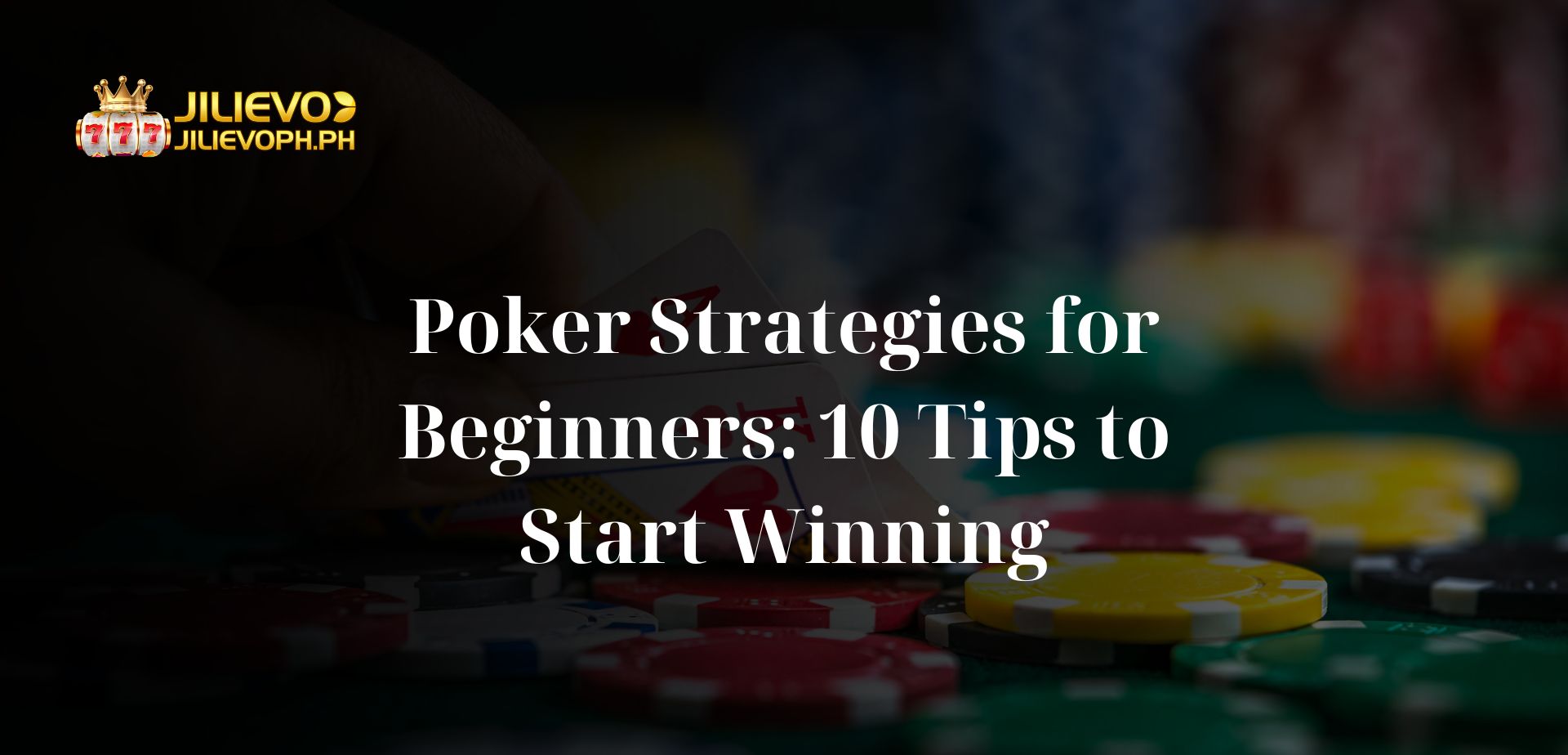Poker is a viral game that combines skill, psychology, and mathematical strategy. While the rules are simple, becoming a winning player takes dedication. As a beginner, the amount of poker strategy advice out there can be overwhelming.
This guide covers the top 10 must-know tips for new poker players. You’ll gain a solid foundation to build your skills by mastering these fundamental strategies from the start. Get ready to learn about position, starting hand selection, pot odds, bankroll management, and much more. Follow this beginner’s poker strategy blueprint, and you’ll be ready to start winning consistently.
Table of Contents
Toggle- What is Poker?
- Beginner Poker Strategy Tips 1-10
- Tip 1: Master Starting Hand Selection
- Tip 2: Understand the Importance of Position
- Tip 3: Learn the Math Behind Pot Odds and Outs
- Tip 4: Start With Manageable Bankroll
- Tip 5: Play Tight, Solid ABC Poker Early On
- Tip 6: Learn to Bluff Effectively
- Tip 7: Study Player Tendencies
- Tip 8: Focus on One Game Type
- Tip 9: Develop Emotional Control
- Tip 10: Continue Learning and Studying
- Conclusion
What is Poker?
To start with the fundamentals, let’s delve into the essence of poker for novices. Poker, a card game, revolves around betting rounds. Initially, players are dealt hole cards, followed by combining them with community cards to form the optimal 5-card poker hand ranking.
Poker hands are ranked in the following order, from the highest to the lowest: royal flush, straight flush, four of a kind, full house, flush, straight, three of a kind, two pairs, one pair, and high card.

The goal is to create a higher 5-card hand than your opponents or bluff and get opponents to fold better hands. Players can bet chips into the central pot between streets of dealing new community cards, call others’ bets, and raise or fold their hands.
After all betting rounds, players still in the hand reveal their hole cards, and the highest 5-card hand wins the entire pot. Poker requires skills in maths, psychology, bluffing, and strategic decision-making.
Top 3 Must-Know Poker Terms
Pot Odds: The ratio of money in the pot compared to the cost of a call. They are used to determine if a call or fold is +EV.
Bluffing: Betting or raising with a weak or worthless hand to induce folds from opponents with better holdings.

Tilt: An emotional, mental state where a player starts making sub-optimal, irrational decisions after a bad beat or run of cards. Tilt must be avoided.
Beginner Poker Strategy Tips 1-10
Tip 1: Master Starting Hand Selection
This should cover the importance of playing a tight, disciplined range of premium starting hands as a beginner – especially in cash games. Only playing the top 20% of hands is advisable early on.
Tip 2: Understand the Importance of Position
After starting hand selection, the position is critical. This tip would explain playing in late vs early position, the advantages of positional information, and a tighter strategy out of position.
Tip 3: Learn the Math Behind Pot Odds and Outs
While it may initially seem complex, understanding the arithmetic behind poker is crucial for long-term success. Learn to calculate pot odds and your outs to determine if calls are +EV. Practice doing the math during hands until it becomes natural.
Tip 4: Start With Manageable Bankroll
Bankroll management is vital to surviving the variance and staying strong while learning. Allocate a reasonable amount as a beginner bankroll and follow optimal buy-in practices. Ideally, have at least 20-30 buy-ins to start.
Tip 5: Play Tight, Solid ABC Poker Early On
As a novice, avoid fancy plays or deviations from straightforward ABC poker (always be consistent). Play a tight, disciplined style until fundamentals are ingrained. Make confident value bets, and only bluff in apparent spots.
Tip 6: Learn to Bluff Effectively
While playing a solid style is recommended early, you must eventually add bluffing to round out your strategy. Start semi-bluffing with equity and add in strategic bluffs. But avoid over-bluffing initially.
Tip 7: Study Player Tendencies
People generally fall into certain player types with their tendencies. Identifying these in opponents will improve your play. Some are tight/loose, aggressive/passive, solid/maniacs, calling stations, etc. Adjust appropriately.
Tip 8: Focus on One Game Type
Tournaments and cash game strategies differ a lot. As a beginner, please stick to one game type like NL Texas Hold’em cash games or mid-stakes tournaments. Adding complexity too early can prevent mastering the basics.
Tip 9: Develop Emotional Control
Poker is psychologically taxing. You must learn to control emotions like tilt and stay objective. Emotionally, unraveling is a leak that costs money. Practice mental discipline through mindfulness.

Tip 10: Continue Learning and Studying
Poker is a game that requires constant work on improving strategy. Always seek to add new strategic knowledge, watch training videos, analyze hands, and take your game to new levels, even as an experienced player.
Conclusion
Mastering these top 10 poker strategy tips for beginners will help lay a solid foundation to build your skills. Applying each tenet consistently, from starting hand selection and position to bankroll strategy and bluffing.
Starting the path to success as a poker player hinges on adopting a foundational mindset centered on discipline and stability. This mindset fosters constructive habits that patch any gameplay weaknesses and open the door to incorporating advanced strategies over time.
While grasping and executing these strategies takes work as a beginner, the rewards of poker mastery are immense. You can gain a skill to generate income and sharpen essential life skills like mathematics, psychology, decision-making, and more.
Continue studying and implementing this blueprint at Jilievo PH, and you’ll rapidly accelerate your poker journey toward consistent profits. Fortune rewards the disciplined and perseverant.


